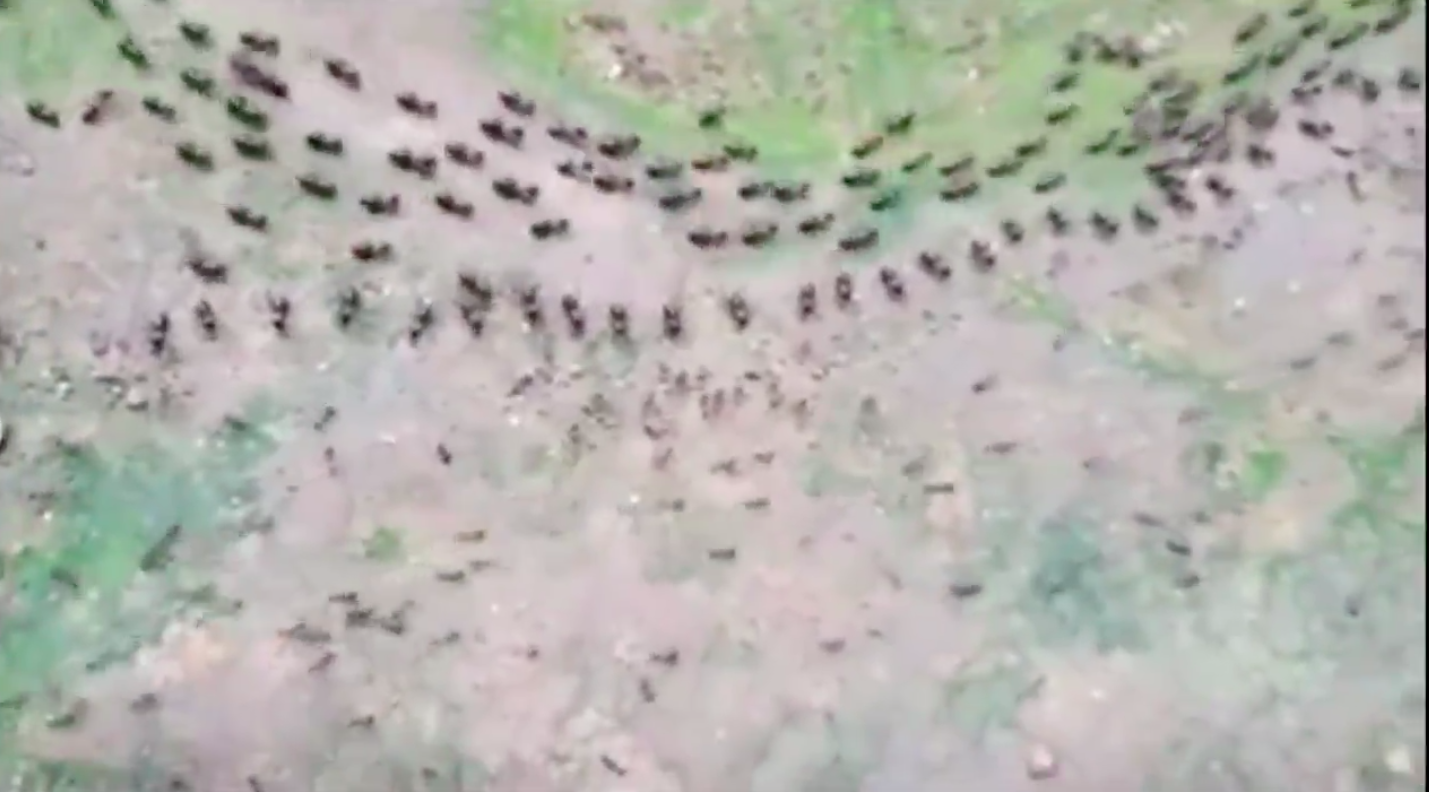Most of us think negatively about termites. They eat up all the wood in our house and things fall apart. We spend money poisoning them and we can poison ourselves.
A tax professional I have long admired, Dr. Vito Tanzi, former Head of Financial Affairs at the International Monetary Fund, has written a brilliant book called Termites of the State: Why Complexity Leads to Inequality (Cambridge University Press., 2018). Vito’s book is actually an analysis of the economic role of the state since World War II, but he uses the term “termites” to describe how complexity has created corruption and inequality for the majority of the population.
There are three types of economic termites. State termites are “various elements that enter the political system and corrupt or distort the legitimate economic role that governments seek to play.” Market termites distort “the legitimate functioning of the market”. Then regulatory termites enter “the enactment and application of laws and the functioning of public administrations after the adoption of guidelines, creating governance problems and contributing to administrative abuse, including corruption”.
Today we recognize that markets are ecosystems and economic termites are part of the economic system, just as true termites are part of nature’s biodiversity. All systems fall apart and grow at the same time. Termites help accelerate the decay of dead plants while building very complex nests or mounds that even have their own air conditioning. They have been around for a long time because they have a symbiotic relationship with the environment. So can economic termites be completely eradicated, or do we just have to make sure they don’t eat up the entire system?
Humanity has created institutions to solve social problems. But all institutions grow and deteriorate. An Asian proverb says that family businesses usually don’t last more than three generations – the grandfather builds the business, the father runs the business, and the children eat or destroy it.
This resembles an iron law of state companies. The first generation managers work with dedication and integrity to build them, the next generation nurses them, and the third generation corrupts them. Then the cycle of organizational transformation begins again. We see that in politics. Politicians who stay long enough often find their legacy crumbling before their very eyes.
As things move from local to global, things become even more complex in scope, scope and speed. Nation states have grown in number, population and complexity. In 1945 there were only 51 members of the United Nations with a population of two billion, mainly because many territories were part of colonial empires that devoured different tribes and less defined states.
Today there are 193 countries with 7.8 billion inhabitants, because democracy has made it possible for countries to split up into smaller states. Quite a few are failed or failing states that may not be economically viable. On the other hand, we all recognize that there is no such thing as a global government providing global public goods, hence we have a very imperfect system of national governments trying to deal with global public “bads” such as pandemics, global pollution, terrorism and illegal Cope with Migration, International Crime and Climate Change.
Complexity has also led to inequality and corruption at the national level. Free markets and widespread technology have not resolved inequality. The increase in the size of the state from around 10% of GDP around 1900 to 30-35% of GDP today has not solved these problems either. Many politicians and officials believe that social problems can be solved by passing more laws and regulations.
Using the US federal registry as an example, the number of pages in federal laws and regulations increased from 15,932 in 1951 to 185,984, with about 7,000 to 8,000 significant rule changes being made each year. This excludes laws and regulations passed by local governments. I challenge any serious banker who claims to have read the Basel III regulations in full. All CEOs of banks and financial institutions delegate this to specialist lawyers and compliance officers, many of whom are employed by the financial regulators.
The level of complexity has made the public more confused, ignorant and suspicious of the political and social system. There are people who think technology is the solution, but who owns big data and has the money to invest in artificial intelligence (AI)? Just the big corporations and the big governments. In the United States alone, the private sector is required to fill out 23,000 federal forms, not counting state forms. Growing bureaucracy is a systemic issue for private companies too.
The American systems thinker R Buckminster Fuller (1895-1983) invented the concept of the spaceship earth, in which mankind struggles with a critical path between mutually assured nuclear destruction on the one hand and global warming and environmental collapse on the other. In his last book, he felt that the world was controlled by a Grunch of Giants (1983), which stands for GR-UN-CH, or the annual Gross Universe Cash Heist, who receives annual dividends of over $ 1 trillion.
From today’s perspective, Credit Suisse’s Global Wealth Report 2020 shows that global household wealth rose from $ 117.9 trillion in 2000 to $ 399.2 trillion, an average growth of 6.6 % per year. The top 1% of the world’s population owned 43.4% of total wealth; the top 12.4% owned a total of 83.9%; while the rest (87.6%) owned less than 16.1%. This is a very unjust and distorted world.
How unfair is the power of these giants and the damage they cause. According to the 2017 Carbon Majors Report, only 100 fossil fuel companies have been responsible for 71% of global greenhouse gas emissions since 1988. These companies have spent billions on lobbying and campaigning money to deny climate change. According to Statista.com, the top 100 global companies will have a market capitalization of $ 44.4 trillion in 2021, which is roughly half of global GDP. Corporations are largely controlled by institutional investors, but 10 of the largest asset management companies manage $ 31.8 trillion in assets. Even if the shares are owned by millions of investors, the actual management is carried out by a handful.
Thus, the global problems are not those of the majority, but rather a tiny minority that controls the military, industry, finance and media of the world. This applies both on a national and on a global level. Personally, I don’t think there is a global Illuminati (secret elite) conspiracy, but these economic termites control the system without necessarily acting together. Just as termites do not have a central mind, they act collectively in ways that appear coherent with respect to the pattern. No wonder so many people believe in conspiracy theories, because the result is that a small minority get richer and the rest feel that the system has been rigged against them.
The collective action trap that we all have is, “How do we collectively act to protect ourselves from the elite who are supposed to protect us from such predatory acts”? Until the arrival of US President Donald Trump, it was assumed that a non-partisan electoral democracy had all the checks and balances. Today, as the US struggles to control its own political damage and Europeans try to cope with increasingly broken policies, resulting in complex coalitions, it is not surprising that confidence in democratic politics has been shaken.
Are we essentially living with termites, or can we eradicate them? Since real termites are likely to outlive humanity, it suggests that we should try to control them rather than exterminate them. Healthy trees are immune to termites. Old and dying trees are eaten by them. So how do we keep the trees (metaphorically our society and economy) healthy?
This is the “big” question that nobody has a good answer to yet. When the best economies and political systems struggle, it is not surprising that every society has to find its own answer. There is no longer a “first best” model to copy.
My personal view is that we need to be more open-minded and have a bottom-up social conversation to see where we can find social consensus on how our society and nation-state can stay healthy. How to construct that is a different story.
Tan Sri Andrew Sheng comments on global issues from an Asian perspective. The views expressed are solely his own.








